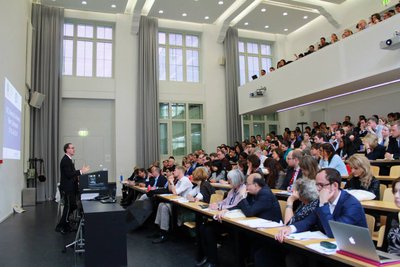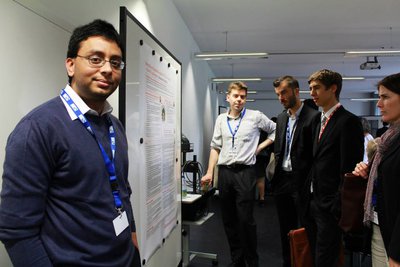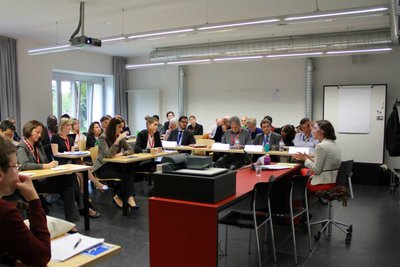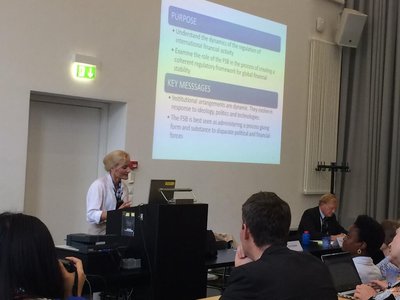12 Jul 2014
Successful SIEL global conference ends
The three-day conference of the Society of International Economic Law (SIEL) hosted by the World Trade Institute has drawn to a close with the final keynote address and the SIEL annual general meeting.
In closing remarks Professor Thomas Cottier, managing director of the WTI, praised the SIEL organising committee for their months of work and the "substantial programme" that was put together. He said he had been very pleased to see so many new, young scholars in attendance.
He also thanked all the sponsors who had made the event possible.
Largest conference
Colin Picker and Meredith Kolsky-Lewis of the organising committee said it was the largest SIEL conference to date with participants from around 40 countries. More than 250 people attended. They thanked the WTI for hosting the event and for the excellent conference dinner.
Saturday's keynote “Establishing a regulatory framework for international financial stability: engineering or evolution?” was given by Eva Hüpkes, Advisor on Regulatory Policy and Cooperation, Financial Stability Board (FSB) and Co-Chair, Basel Committee Working Group on Cross-Border Bank Resolution.
Her key messages were that institutional arrangements are dynamic and evolve in response to ideology, politics and technologies, and that the FSB is best seen as administering a process giving form and substance to disparate political and financial forces.
The theme of the 2014 biennial conference was “Regulatory Challenges in International Economic Law: Convergence or Divergence?” and discussion covered topics related to international economic law, such as trade, investments, finance, intellectual property, competition, and the law in relation to sustainable development and climate change.
The conference opened on the evening of 10 July with the Robert Hudec memorial lecture given by Michael Trebilcock, Professor of Law and Economics at the University of Toronto and entitled “Between Theories of Trade and Development: The Future of the World Trading System”.
A number of concurrent panel presentations took place on the two full days of the conference. Friday’s keynote address was given by David Unterhalter, Professor of Law at the University of Witwatersrand and former member of the WTO Appellate Body who spoke on the distinctions between legal reasoning and economic reasoning in WTO law.
He concluded that law and economics are distinctive but have points of intersection or linkages. In WTO law there is a need to define areas that are well suited to economic treatment and areas where that matters less.
Launched in 2008, SIEL’s mandate is to foster coordination, collaboration and debate between IEL scholars and practitioners and national or regional IEL organisations around the world.





